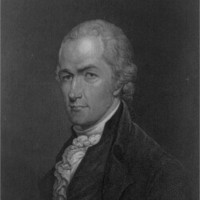After the fighting was over, the issue of slavery, which had become taboo, was tentatively brought to the forefront. By this time, free slaves had mostly migrated north, and plantations and slave-owners dominated the southern states.
The federal government, which was deep in debt and still forming, looked for ways to increase federal revenue. Taxation was a highly sensitive subject to the colonists, but it was approached as a viable solution to the government’s monetary problems.
Should slaves be counted as people or as property when taxing slave-owners? If slaves were considered property, those who owned large plantations (primarily Southerners) would be taxed more than anyone else. Southern delegates to Congress argued that taxes should only apply to free men, meaning that northern cities, which were more populated, would be paying an unfair amount of the federal taxes.
However, it also meant that there would be more representation in congress for that number of tax-paying citizens. Anything put to a vote would fall in the northern states’ favor. The southern delegates argued that if they were to be taxed for their slaves, they should have equal representation in Congress and demanded one vote for each slave they owned.

Alexander Hamilton supported abolition.
Since “taxation without representation” had started the Revolutionary War, most people felt this was unfair to the slaves, especially since they would have no say in where their vote was cast.
“Much has been said of the impropriety of representing men who have no will of their own. …They are men, though degraded to the condition of slavery. They are persons known to the municipal laws of the states which they inhabit, as well as to the laws of nature. But representation and taxation go together. …Would it be just to impose a singular burden, without conferring some adequate advantage?” (Alexander Hamilton)
In the end, three-fifths of a vote was conceded for each slave to be cast as the owner wished. This was supposed to balance the difference in Congress.

Garry Wills, Pulitzer-prize winning author and historian, has explained in his book Negro President: Jefferson and the Slave Power how much this affected which laws were passed. Thomas Jefferson would never have been president if it weren’t for the Three-Fifths Compromise, as it became known. Jefferson actually had less votes than his opponent, Aaron Burr, but he was the popular candidate for the South and he made it into the office “on the backs of slaves.”
The Three-Fifths Compromise is commonly misinterpreted. Many take it to believe that the Founding Fathers viewed slaves as “three-fifths of a person”. While no man can enslave another man and still believe him equal to himself, we can’t claim to know that’s how the Founding Fathers felt. However, that was not the meaning of the Three-Fifths Compromise.


